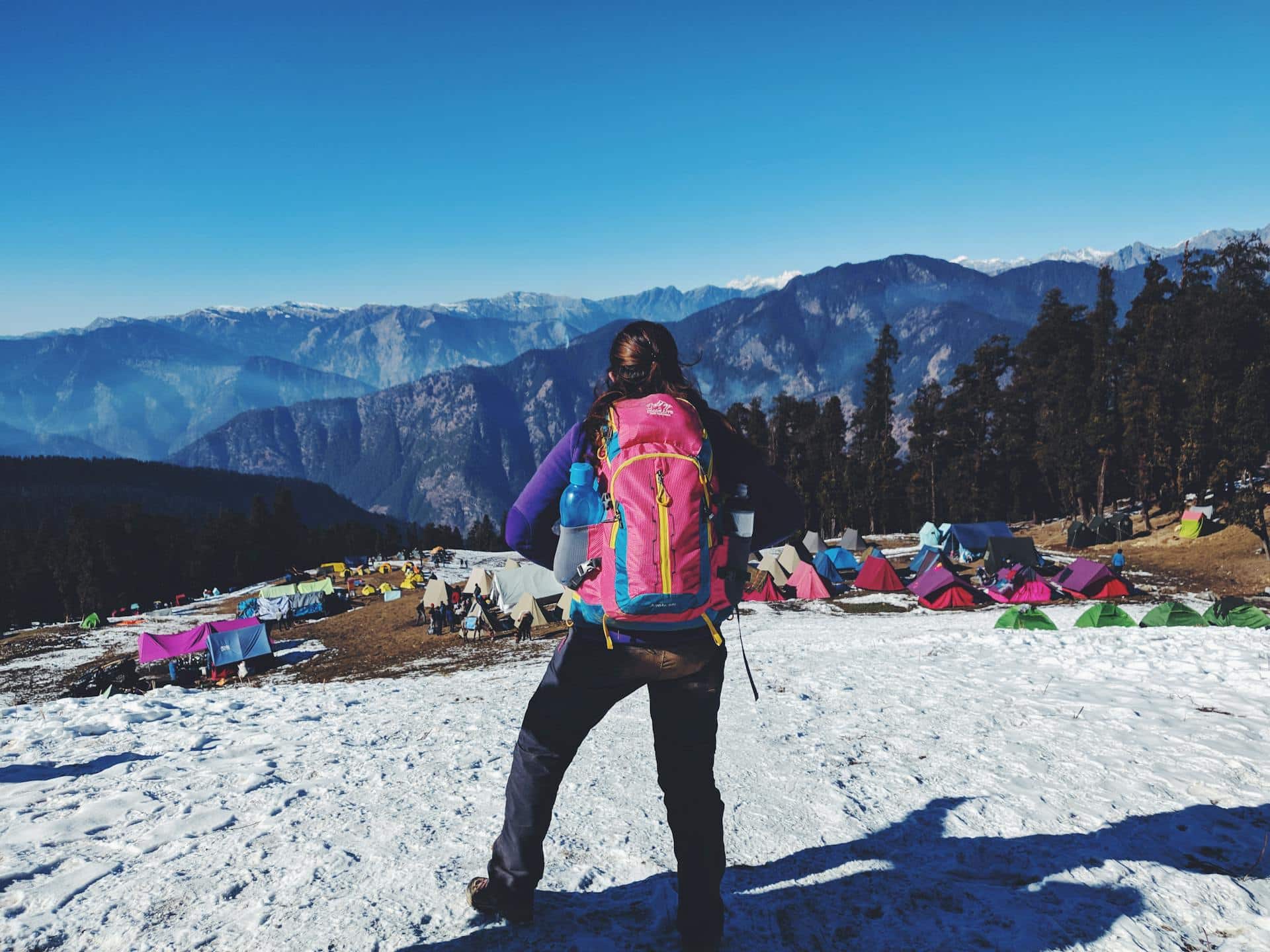What are the legal requirements for camping in Scotland’s wilderness areas?

As outdoor enthusiasts continually seek new frontiers, the wild landscapes of Scotland have become a popular destination for those looking to connect with nature. Among the rolling hills, endless lochs and vast open spaces, there is no shortage of places to pitch a tent and camp under the stars. But, while the experience can be breathtaking, it's important to understand the legal requirements that govern camping in Scotland's wilderness areas. This article will provide a comprehensive guide on the rules you need to follow when setting up camp in this spectacular part of the world.
Understanding the Scottish Outdoor Access Code
Before embarking on your camping adventure in Scotland's wilderness, it's crucial to understand the Scottish Outdoor Access Code. This set of regulations provides a framework for how you can access and enjoy the country's outdoor spaces responsibly. Scotland is known for its 'right to roam' law, which allows public access to most land and inland water areas in Scotland. However, this does not mean that you can camp anywhere and anyhow you please.
Cela peut vous intéresser : Everything you need to know about rome jubilee 2025
The Scottish Outdoor Access Code stipulates that wild camping is allowed on most unenclosed land, but with some significant caveats. You must respect the privacy, safety, and livelihoods of those living or working in the countryside, as well as the country's environment and natural heritage. Wild camping should also be lightweight, done in small numbers, and for no more than two or three nights in any one place. Campfires can cause significant damage and should be avoided.
Respecting the Land: Leave No Trace Principles
In addition to the Scottish Outdoor Access Code, the Leave No Trace principles are a vital part of camping ethics in Scotland's wilderness areas. These guidelines are designed to promote respect for the environment and wildlife, and to minimise the impact of camping on the landscape.
En parallèle : How to prepare for unpredictable weather when visiting the UK?
The principles include planning ahead and preparing, travelling and camping on durable surfaces, disposing of waste properly, leaving what you find, minimising the impact of fires, respecting wildlife, and being considerate to other visitors. Essentially, your aim should be to leave the environment as you found it, if not better.
Restricted Camping Management Zones
In specific areas in Scotland, known as Camping Management Zones, you may need a permit to camp or stay overnight in a vehicle. These zones have been introduced in areas which have experienced issues related to high levels of camping, such as rubbish left behind, damage to vegetation, and disturbances to local communities.
For example, the Loch Lomond & The Trossachs National Park is a Camping Management Zone. If you wish to camp or stay overnight in a vehicle in this park during the peak season (1st March to 30th September), you will need to book a permit or stay at a designated campsite.
Navigating Land Ownership Laws
Land ownership laws in Scotland are relatively complex, with the majority of the land being privately owned. However, the 'right to roam' law provides considerable access rights to this land, including for camping purposes.
It's important to note that while you have a right to access most land for recreational and educational purposes, this does not mean you can do whatever you like on the land. You must still behave responsibly and respect the landowner's rights, interests, and activities. Moreover, there are certain areas where access rights do not apply, such as schools, gardens, houses, and non-residential buildings.
Camping Outwith Scotland: Wales and England
If you're considering extending your camping adventures beyond Scotland, it's crucial to understand that the legal requirements for camping in England and Wales are different. Unlike Scotland, there is no general right to camp anywhere you like. Most land in England and Wales is privately owned, and you will usually need the landowner's permission to camp.
National Parks are a common camping destination, but even here, you must camp on a designated campsite, unless you have explicit permission from the landowner or relevant authority. Wild camping is generally not allowed, except in Dartmoor National Park, where it is permitted under certain conditions.
In summary, camping in Scotland's wilderness areas offers an unrivalled opportunity to connect with nature and enjoy its stunning landscapes. However, it's vital to understand the legal requirements in place to ensure that you can enjoy your camping experience without infringing on the rights of others or damaging the environment. By respecting the Scottish Outdoor Access Code, adhering to the Leave No Trace principles, obtaining necessary permits for Camping Management Zones, and navigating land ownership laws, you can ensure a positive camping experience that leaves Scotland's wild spaces just as you found them.
The Essentials for a Scottish Camping Experience
Knowing the legal requirements is only part of the preparation for your camping trip in Scotland's wilderness. Equally important are the practicalities: what gear to bring, the best times to go, and how to prepare for different weather conditions.
Given Scotland's unpredictable weather, a waterproof sleeping bag and a durable, rain-resistant tent are must-haves. A good quality camping stove is also advisable since, as mentioned previously, open campfires are generally discouraged due to the possible damage they can cause to the environment. A map and compass, or a reliable GPS device, are essential for navigating the wild, open spaces of the Scottish wilderness.
Scotland's midge season (typically from late May to September) can be a nuisance for campers. Thus, packing insect repellent and a midge net can make your camping trip more comfortable.
Lastly, be prepared to pack out all your waste. Remember the Leave No Trace principles: everything you bring in, you should bring out again. This includes all rubbish, used camping gear, and even leftover food. The aim is to keep Scotland's wilderness pristine for the next person who wants to enjoy it.
How to Handle Emergencies While Camping
While wild camping in Scotland is a thrilling adventure, it's also important to be prepared for emergencies. This could range from getting lost to sustaining an injury, or encountering dangerous wildlife.
Before setting off on your trip, make sure you have a well-stocked first aid kit. This should include bandages, antiseptic wipes, pain relief medication, and any personal medication you might need.
If you're planning on wild camping in more remote areas, consider investing in a personal locator beacon or satellite phone. These devices can be vital in an emergency situation where there's no mobile phone signal.
Respect Scotland's wildlife. Remember, you are a visitor in their home. Keep a safe distance from animals, and never feed them. If you encounter a potentially dangerous animal, stay calm and slowly back away.
Conclusion: Enjoying Scotland's Wilderness Responsibly
In conclusion, wild camping in Scotland's wilderness areas offers an unforgettable way to experience the country's stunning landscapes. However, it's crucial to do so responsibly. The Scottish Outdoor Access Code and the Leave No Trace principles are not just legal guidelines – they are part of a camper's responsibility to respect and preserve Scotland's natural heritage.
Moreover, the landowner's permission may be required in certain areas and the regulations can be different when camping in England and Wales. Therefore, it's essential to be aware of the different rules before you pitch your tent.
By being prepared, respecting the land, and following all the necessary regulations, campers can ensure that they leave the Scottish wilderness just as they found it, if not in a better state. This is the legacy we can all leave for future generations of wild campers who, like us, are drawn to the allure of Scotland's open skies, rolling hills, and tranquil lochs.
